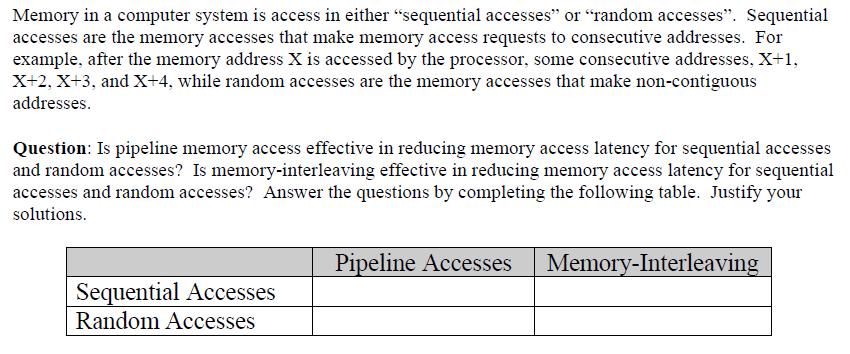Answered step by step
Verified Expert Solution
Question
1 Approved Answer
Memory in a computer system is access in either sequential accesses or random accesses. Sequential accesses are the memory accesses that make memory access

Memory in a computer system is access in either "sequential accesses" or "random accesses. Sequential accesses are the memory accesses that make memory access requests to consecutive addresses. For example, after the memory address X is accessed by the processor, some consecutive addresses, X+1, X+2, X+3, and X+4, while random accesses are the memory accesses that make non-contiguous addresses. Question: Is pipeline memory access effective in reducing memory access latency for sequential accesses and random accesses? Is memory-interleaving effective in reducing memory access latency for sequential accesses and random accesses? Answer the questions by completing the following table. Justify your solutions. Sequential Accesses Random Accesses Pipeline Accesses Memory-Interleaving
Step by Step Solution
There are 3 Steps involved in it
Step: 1
Sequential Accesses Pipeline memory access is effective in reducing memory access latency for sequential accessesThis is because pipeline memory access can start prefetching the next memory location w...
Get Instant Access to Expert-Tailored Solutions
See step-by-step solutions with expert insights and AI powered tools for academic success
Step: 2

Step: 3

Ace Your Homework with AI
Get the answers you need in no time with our AI-driven, step-by-step assistance
Get Started


